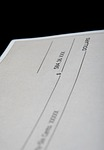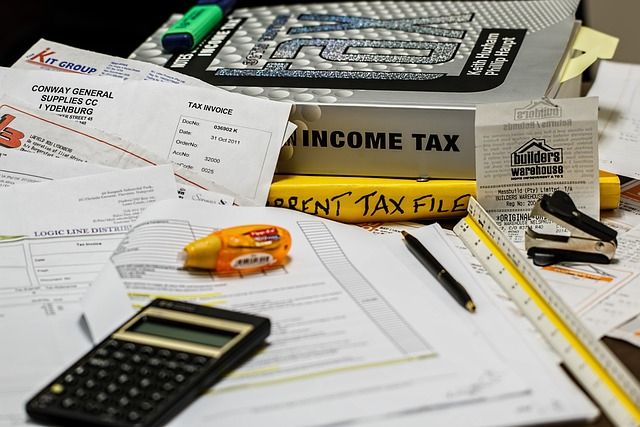What Counts as Pay Stubs?
Pay stub includes detailed information from a pay period that both employers and employees can use. Employees hope to receive paystubs as it serves as records of their salaries. By reviewing their pay stubs, employees can ensure they were paid exactly how much money was agreed upon and understand the sectors that warranted their deductions.
On the other hand, employers use pay stubs to prove that their business is paying employees as promised and settle discrepancies with employee pay, including federal taxes like federal income taxes and the federal insurance contributions act (FICA).
We will discuss the following topics in this article:
- · What a paystub is
- · Parts of a paystub
- · Paystub vs. Paychecks
- · Gross pay vs. Net pay
- · Do checks count as pay stubs?
- · How to show pay stubs
- · Pay stubs for ei
- · What qualifies as a pay stub?
What a paystub really is
A pay stub is a segment of your paycheck, except that it carries the details of tax deductions and the employee's net pay earned for a particular working period. It also has elements of the number of hours worked and year-to-date payroll.
Electronic pay stubs are becoming more prevalent today with the rise of direct deposit. In the past, and still in some places today, employees received paper pay stubs. However, the provision of printed paystubs has been reduced due to misplaced or stolen paystubs.
Do you need pay stubs along with your check? Well, you can find out if pay stubs are regarded as important in your state according to federal law.
You are required by the Fair Labor Standards Act to keep track of the hours your employees work, even if you're not in a state that provides pay stubs.
The two most important parts of pay stubs are; how much money you are being paid if you have a pre-tax salary, the taxes paid, and the deductions made, but you are advised to pay attention to your gross, year-to-date, and net pay stubs.
Parts of a Pay Stub
The invoice, receipts, pay slips, and even the paychecks look different. As a result, the employee's pay stub has its uniqueness. The parts of a paystub include;
- · Employee's name
- · Pay period
- · Date
- · Hours worked
- · Employee's gross pay
- · Deductions;
These include; Mandatory or Involuntary deductions, which include gross wages garnishments, taxes, and fines not necessarily related to work.
Deductions also include Mandatory or Voluntary deductions, which usually amount one has chosen to have subtracted from their gross pay. In most cases, this subtraction is related to Medicare taxes and childcare costs, of which set your flexible spending accounts as dependent care can help with this, allowing for tax-free withdrawals. In other cases, retirement contributions are subtracted. This is the case for most salaried employees.
- · Employee's contribution (FICA, FUTA, SUTA) / employee's benefits.
- · Direct deposit information
- · Net pay
Attached below is an image of what counts as a Pay Stub.
Paycheck vs. Paystub
What exactly is a paycheck, and how does it differ from a pay stub? A paycheck is an antiquated method of compensating employees, as most small businesses use automated payroll systems. It is a physical paper check for the amount to be paid based on their salary or hours worked. While both are necessary for employees to keep track of their payments, a paycheck can be issued without a pay stub.
Do checks count as pay stubs?
A paycheck is not considered a pay stub. Paychecks are either bank checks or electronic direct deposits. It only contains the amount to be paid. A pay stub is a document that details all the calculations applied to the take-home pay. It supports complete transparency.

Gross vs. Net Pay
Although new business owners primarily debate this topic, the differences are fairly obvious.
Gross pay is an employee's total earnings before taxes, and other deductions are deducted. In contrast, Net Pay is the amount an employee receives as take-home pay after deducting all expenses.
Each pay period, an employer must calculate the employees' gross earnings and net payments. In situations where a pay stub is not available, the defiant can be requested.
How to show pay stubs?

Pay stubs are one way to demonstrate proof of income, particularly when applying for a loan.
If you are paid without paycheck stubs and need them, remember to request them from your employer, as you are entitled to them for all pay periods.
If it's on a website, you'll be given access to it, so you can download it whenever you want. You can, however, contact the payroll department at your workplace after first contacting your employer. Request copies of your pay stubs and wait for them to be retrieved.
Are you trying to get your pay stubs from your last employer?
- · Contact your former employer
- · Complete the necessary paperwork given to you by the accounts department.
- · File a complaint if you have waited a while and still need assistance.
Small business owners can download free pay stub templates and customize them to fit the company's style, or they can use stub generators like real check stubs to issue pay stubs. For this, accounting software like Sage and Patriot software can also be used. They also have built-in tools for creating payslips/ paychecks, the calculation of gross income directly, payroll setup, and inventory management tools. Remember to include the things a pay stub carries in your customized one.
Pay stubs for ei
Employment Insurance (EI) is a federal government benefit that provides citizens with temporary financial relief while they are ACTIVELY looking for work.
You must be willing and capable of working at all times and keep a record of the times you were/are not available for work in case it is requested.
You must also keep track of employers and the dates you contacted them and report any money earned while on EI. Your employer may not require this, but you will most likely be asked to present it when looking for a house, renting, or paying hospital bills. EI is also a percentage of gross income paid by employees and employers to provide interim payments in the event that employees become unemployed. You can, however, work part-time and still receive EI. You can get EI benefits even if you are self-employed.
What if I am fired? Can I still apply for EI?
Yes, you can apply for EI even if you were fired from your previous work. This is because misconduct cases often need to be clarified.
You should ask your past employer to provide you with an ROE (Record of Employment) if it still needs to be sent to the government.
Aside from your ROE, you must provide proof of employment, such as pay stubs and T4 slips. You will most likely get fewer EI payments or your money withheld if you do not apply within four weeks after your employment ends, and this is bad news.
Frequently Asked Questions (FAQs)
How do I get a Paystub as an independent contractor?

Being an independent contractor makes it quite difficult to calculate your earnings as they will not be regular; i.e., you get paid according to your work.
Most businesses make the mistake of assuming that contractors should be included in standard payroll processing and thus be given a pay stub simply because they are paid to perform a service. Employees and independent contractors must be treated differently, but not discriminately. Law requires contractors to declare their earnings and file their taxes. Contractors must not be treated as employees to avoid wrongfully withheld contributions. Otherwise, there may be a problem with disguised employment, which can result in severe penalties. These penalties differ from one state to the next.
Independent contractors should invoice the firm they worked for, which will demonstrate a record of payment to be in line with tax laws.
Contractors are generally not given a pay stub because no taxes, deductions, contributions, or benefits are associated with the contractor-company relationship. They do not need a pay stub because their annual salary must be consistent.
Do employer taxes get deducted from employees' gross pay?
Like employees, employers often have their income tax and employer contributions to pay. However, it is important to know that these aren't deducted from the employee's gross pay. An employer must pay the sums for tax and contributions directly to the local tax authority or relevant fund.
Listed below are some examples of employer taxes and contributions:
- · National insurance
- · 401(k) plans
- · Social security
- · Unemployment tax
- · Health insurance premiums
Federal income tax

Employee pay stubs can be examined to verify that payments and deductions are accurate. In comparison, the Equal Employment Opportunity Commission (EEOC) mandates that all employment and personnel records be kept for at least one year, including employment tax records.
Final Thoughts
A pay stub is a non-binding document showing deductions, net salaries, gross salaries, and benefits. All of these are what count as pay stubs. Apart from the fact that pay stubs will help you pay to rent and understand how you earn, amongst other benefits listed in the text above, pay stubs will help your potential employers and other institutions understand your earnings. Contact us today to get pay stubs generated for you.
References
https://smallbusiness.chron.com/make-pay-stubs-employees-22139.html
https://www.indeed.com/career-advice/career-development/how-to-get-a-pay-stub
https://www.paycor.com/resource-center/hr-glossary/gross-vs-net-pay/
Kristen Larson is a payroll specialist with over 10 years of experience in the field. She received her Bachelor's degree in Business Administration from the University of Minnesota. Kristen has dedicated her career to helping organizations effectively manage their payroll processes with Real Check Stubs.

